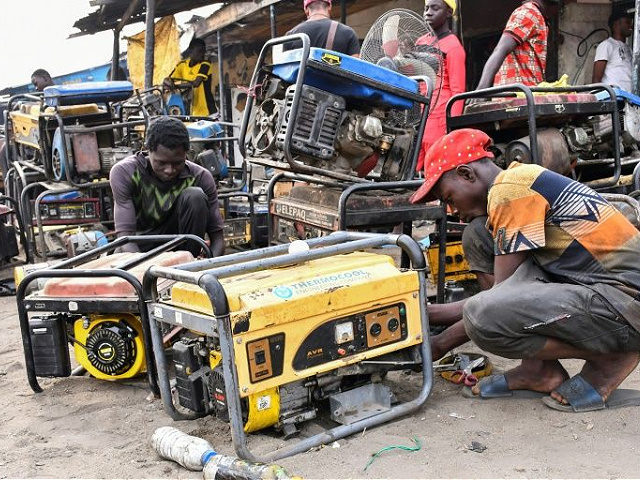Residents across northeastern Borno State, Nigeria, have been without electricity for over a month since Nigeria’s Boko Haram terror group bombed a major power supply line in Borno’s capital, Maiduguri, on January 17.
The Maiduguri capital region, home to at least two million people, was “forced into darkness” on January 17 after armed Boko Haram insurgents “used an improved explosive device [IED] to destroy the only functional electricity transmission line along Damaturu-Maiduguri highway that supplies light to many towns and communities in Borno State,” Nigeria’s Vanguard newspaper reported on February 19.
“Some wealthy residents and the state government are currently relying on generators, while business activities have been grounded for three weeks,” a Maiduguri ice block seller named Mohammed Usman Abba told the newspaper on Friday.
“The disruption of electricity supply by terrorists has plunged us into darkness,” Audu Isa, a resident of Maiduguri’s Gomari district, told Vanguard. “For how long can we continue this way?”
The electric company serving Maiduguri announced on January 20 that Boko Haram attacks on transmission lines and infrastructure in the Maiduguri area had compromised electricity service to the capital city on January 17, detaching Maiduguri from Nigeria’s national grid.
“The Transmission Company of Nigeria [TCN] hereby informs the public that Maiduguri and its environs have been cut off from the national grid since January 17, 2020, due to damages to TCN’s equipment by insurgents,” the electric company’s statement read.
“The incident affected the 330kV transmission line between Maiduguri and Damaturu. Also, the Damboa – Maiduguri 132kV transmission line has equally been disconnected from the grid for sometimes, for the same reason [sic],” the statement further read.
Vanguard described Boko Haram’s January 25 attack on Maiduguri’s main power supply line as “a final blow” to Borno state’s electricity supply system after the Islamist terror group recently attacked the previous main source of power to Maiduguri, an “old transmission line” flowing between regional towns Biu, Damboa, and Maiduguri.
“Following incessant vandalization of the lines by insurgents, the Federal Government opted for the installation of a new transmission line along Damaturu-Maiduguri Road, which was also vandalized immediately after completion. Before its destruction, it was supplying power to the Borno State capital and some parts of nearby Niger Republic,” the newspaper recalled on Friday.
“Maiduguri nominally has a population of about two million, but it is likely now much greater because of the influx of persons displaced by fighting between Nigerian security forces and Boko Haram factions,” the Council on Foreign Relations (CFR) reported on January 22. Boko Haram has used Borno State as its stronghold and hideout since it launched a regional Islamist insurgency in northern Nigeria in 2003.
Maiduguri is home to a modern university and an international airport. It is also located along a Nigerian national railway network. In addition to serving as the Borno State capital, Maiduguri has long been “a major trading center, especially for cattle,” according to CFR.

COMMENTS
Please let us know if you're having issues with commenting.